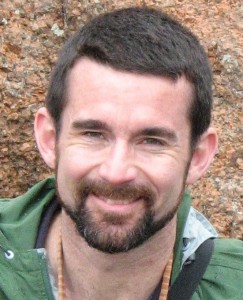 The first case of Ebola in the United States, a cluster of cases of “acute neurologic illness with focal limb weakness of unknown etiology in children,” and ongoing concern over enterovirus D68 in the US. As if economic uncertainty and ongoing conflicts around the globe were not enough to put one on edge, there is now a near daily stream of news about spreading infectious disease threats.
The first case of Ebola in the United States, a cluster of cases of “acute neurologic illness with focal limb weakness of unknown etiology in children,” and ongoing concern over enterovirus D68 in the US. As if economic uncertainty and ongoing conflicts around the globe were not enough to put one on edge, there is now a near daily stream of news about spreading infectious disease threats.
As physicians it seems we are at least implicitly expected to deal primarily with certainties. What is the right diagnosis? What is the risk threshold above which one should take a statin to prevent vascular “bad things?” What medication will prevent my patients getting badly ill from an influenza-like illness? What interventions will ensure my older patients don’t fall or get depressed?
How do we navigate the dicey waters between the scary bad things, and the desire for certainty in diagnosis and prevention?
Part of the answer lies in the person to person nature of the doctor patient relationship. We are not just technicians, we are healing professionals who have a role in being present with our patients—whether in the clinic or at home.
However, while presence is good, it may not always be enough. It is great to be with someone, but when our tools and medicines and treatments do not adequately address the concerns at hand (which may be clearly verbalized, or may be implicit and just below the surface), there is a need to look to other resources—and for many patients that has to do with exploring the role of the spiritual.
Doctors are not priests or pastors, and priests and pastors are not doctors (although there are some, myself included, who have trained as both), and providing care within the scope of one’s training is the essence of professionalism.
Nevertheless, in medicine we cannot overlook the fundamental importance that spirituality may have for many of our patients, whether they identify themselves as being “religious” or not. It behooves all of us in medicine to at least become familiar with identifying when the issue of concern for a patient may be primarily existential or spiritual.
How does one help a patient deal with the existential or spiritual issues that may accompany or undergird questions of health or illness? Identifying appropriate spiritual care resources in one’s community is one key step. Becoming familiar with basic spiritual assessment tools is another step. Becoming aware of one’s own existential or spiritual values and biases—and being aware of how these shape relationships with patients—is a third important step.
Uncertainty faces us all in daily life: whether on the grand scale of news about global health threats, or on the personal scale of something as grave as cancer or as mundane as everyday problems with sick kids. In medicine we need to know what to do, but we also need to know what to offer when what we can do is not sufficient to meet what our patients need.
William E Cayley Jr practises at the Augusta Family Medicine Clinic; teaches at the Eau Claire Family Medicine Residency; and is a professor at the University of Wisconsin, Department of Family Medicine.
Competing interests: “I declare that I have read and understood the BMJ policy on declaration of interests and I have no relevant interests to declare.”
